|
Today is the fifth day of the Octave of Christmas and for many of us, the hubbub of Christmas has come and gone and we are getting back to work. On Christmas Day, we were overwhelmed with the joy of the birth of Christ and the excitement of sharing in God’s love for the world. This feeling does not necessarily wear off right away, it can stick with us for many weeks to come and leaves us wondering “what’s next?”
Every time I hear these words I think of the show The West Wing, where President Bartlet’s signature phrase is “what’s next?”. This phrase brings continuity to the story line as the characters continually dedicate their lives to serving the nation. As I think about it now, we can use this simple little phrase to help ground us as we move beyond the Christmas season. The year 2017 is just a few days away and many of us are thinking about what our new year’s resolutions are going to be: from dieting, to posting a photo on Instagram every day, to reconnecting with old friends. While these are great ideas for the coming year, instead of just focusing on ourselves, let us also try to ask “what’s next” for our faith and our relationship with Christ. We can do this in a few simple steps:
Our relationship with Christ is critical and now is the perfect time to evaluate it. We have so many resources available to us: our priests and parishes, our friends and bible study groups, the saints and the Holy Family, and many more. Asking ourselves “what’s next,” gives us the opportunity to recommit ourselves to God, to dive deeper into our faith, and to live out our lives as apostles. Let us use the momentum of the new year and the joy of the Christmas season to motivate ourselves into keeping our faith alive and healthy. Nicholas Shields is a Young Professional in Washington, D.C.
0 Comments
The story of Christmas illustrates that there are no perfect families (or parishes) but we can hope to be a holy one. Part of becoming a holy family at Christmas means turning our attention to the spiritually lost among our family and friends. Here are a few things to keep in mind as we look to welcome disconnected Catholics to our churches and homes this season. Make Room for the Lost and Lonely For some people walking through the church doors, the Christmas season is a difficult and lonely time, a reminder of the families they don’t have. How do we show hospitality to those without a human family? If you are on a church staff or volunteer, slow down and consider the place you are making for those who feel lost and alone. You could, for example, make sure that the elderly and handicapped are able to find seating appropriate to their needs. Or, personally invite those who are alone to join in any parish fellowship that might be happening after Mass. Perhaps you could even invite a few of these people to bring up the gifts during Mass. A special role in the Mass during this important liturgical season can show those who feel unloved how honored we are to have them as members of our parish family. The goal is not to expose or make a scene around these types of parishioners, but to consider their needs and communicate that they are valued. Make Occasional Visitors Feel Loved, Not Judged For those coming to church at Christmas for the first time in a long time, many already carry a mild feeling of guilt that they don’t go to church regularly and expect to feel a little judged. Let us welcome these occasional visitors with open arms and encourage them to return by modeling the joy of the Lord through our actions. Joy is persuasive. If we let the love of Christ beam through us this Christmas season it might just be enough to help these occasional visitors desire more frequent encounters with our Lord in the Mass. Give a Gift to the Poor The Christmas gift-giving tradition began with St. Nicholas giving a gift to a poor family. While many church budgets are spread thin during this time of year, consider making room in your budget to help the church provide a gift to a local charity or foreign mission. Not only is this celebrating the authentic tradition of Christmas presents, it a sign of generosity that encourages church communities to remember their brothers and sisters whose basic material needs often go unmet. When we demonstrate charity as a parish family, we send a powerful message about what it means to come together on Sundays. Our faith is what is called a “corporate faith,” meaning, that we are all working toward salvation together. For those who have never been to Mass, or haven’t been in a long time, demonstrating parish-wide charity can show how much we as a community care about individual members of the body of Christ who are in need. For those who feel unwelcome or unworthy of joining the Church, communal Christian charity is a great way to demonstrate that we want them with us on Sundays and that we will work together to make sure their needs are provided for. Evangelize Through Beauty The Advent and Christmas seasons are rich with light and melody, in both a sacred and worldly sense. Advent is the liturgical season when we encounter beauty in the sparseness and fragility of the barren winter. The Christmas octave and season is full of color and sounds. Beauty has the effect of lessening our defenses and heightening our receptivity to the message of Jesus. What are the elements of beauty present in your church and home? How can you enhance them? Consider playing some soft sacred music in your home during the holidays or decorating your home with a nativity scene or poinsettia plant. It doesn’t take much, just something small to celebrate what a miraculous time Christmas is for all Christians. Jesus was born in an “irregular” family situation - not a perfect family by worldly standards, but a holy family in God’s plan for the world. Would we Christians today recognize and welcome this same Jesus? He is among us. He is knocking at the doors of our hearts, homes, and churches in the form of family, friends, and strangers in need of peace and hope. Let us welcome Jesus in! "From starry skies descending,
Thou comest, glorious King, A manger low Thy bed, In winter's icy sting;" ~St. Alfonso Liguori 1732 In a few short days, millions of children will wake up excited to see what is under the Christmas tree. Many will be eager to wake up their families so they can unwrap these gifts. There is a sense of pure joy and excitement that radiates from these children. I have a young Goddaughter, who was explaining to me over Thanksgiving about all the different things she hopes to receive. Her eyes lit up at just the mere thought of Christmas morning. It made me stop and wonder about my own excitement and joy for Christmas. I get caught up in all of the trappings of the season and not the very reason it exists. I started to question if I had that childlike excitement for the birth of our Lord and Savior, Jesus Christ. The more and more I thought about it, the more I realized that I have lost part of that joy. Advent and Christmas provides one the time to stop and think about how the Prince of Peace, the King of Kings, the Messiah, did not come in some powerful show of force or splendor. Rather, God chose quite the opposite. He came to us as a child, born in a manger. The human embodiment of love and mercy came to us in the form of a helpless baby. In the middle of the holiday season, you rarely take the time to stop and think about how perfect that is. Being a godfather has taught me about the amazing ability of a child's capacity to love and forgive. Many a family function, I will walk in and my goddaughter drops what she is doing and runs over to give me a big hug. Her face lights up with joy and excitement. One can only imagine a young Jesus showing the same sort of love to Mary and Joseph. The beauty of this simplicity has inspired the Church for two thousand years. A wonderful example of this is the Christmas Eve Mass at the Vatican. At the end of Mass, the pope carries a small statue of Jesus to be placed in nativity scene as the choir sings the carol "Tu Scendi Dalle Stelle". This carol was written by Saint Alphonso Liguori in 1732 and translated from Neapolitan into Italian by Pope Pius IX. This hymn is about Christ as a child who descends from heaven out of love for us. "Dearest, fairest, sweetest Infant, Dire this state of poverty. The more I care for Thee, Since Thou, O Love Divine, Will'st now so poor to be." I think it is the perfect hymn for these last few days of Advent. For these next few days, I invite you to join me in a quest to be like a child. A quest to seek the joy of Christ's birth of in a pure, whole hearted, and simple way. Pope Francis tweeted about a year ago "to be friends with God means to pray with simplicity, like children talking to parents." For the next few days, as prepare to celebrate the birth of Jesus, let us embrace peace, love, joy, and mercy just like a child who runs to greet you with open arms and an open heart. For more information on Advent, check out our resources and devotional material here. For many of us, the “infancy narratives,” from Matthew and Luke are well loved, but also well worn. Gabriel’s visit to Mary, Mary’s visit to Elizabeth, the birth of Our Lord in Bethlehem — not only do we ponder these events every year during Advent and Christmas, but also every time we pray the Joyful mysteries of the rosary. We know the stories, we know what they illustrate, we know why they’re important. But knowing the basic bullet points of the New Testament is not enough. We are called to know our Lord more deeply, more intimately. Dei Verbum compares the gift of Scripture to the gift of the Incarnation: “for the words of God, expressed in human language, have been made like human discourse, just as the word of the eternal Father, when He took to Himself the flesh of human weakness, was in every way made like men” (13). The Holy Spirit has bundled the immensity and perfection of God into our limited and imperfect human language. Like Christ contained himself in human form, so too has the Father contained himself in our human tongue. This Advent, let us return to the infancy narratives with fresh eyes. Recognizing that, like St. Ignatius advised his Jesuits to do while on mission, we can use the Word to ignite our senses, engage our collective memory as the people of God, and to understand our Lord as both father and friend. The Visitation of Mary to Elizabeth (Luke 1:39-56) is one moment from the infancy narratives that can prepare us in a special way for the coming of our Lord this Christmas. It provides us with a snapshot of Mary as a loving servant who is familiar with the Scriptures, bubbling over with joy, and confident in the promises of her God. Her example is one we can imitate even today. Spend some time with the narrative here and then consider Mary’s threefold approach to Advent:
Amidst the flurry of shopping, visiting, and end-of-year work activities that will surely fill our Advent calendars this season, take five minutes a day to spend time with God in prayer. If you struggle with prayer and don’t know what to say, read the Magnificat. Imagine a young, triumphant Mary, glowing before gray-haired Elizabeth and try to imagine the feelings of joy and wonder Mary must have felt in those moments. Then ask the Lord to help you channel that wonder as you prepare a place for him in your heart. Let your soul proclaim the greatness of the Lord this Advent, through joy, Scripture, and service. "During those days Mary set out and traveled to the hill country in haste to a town of Judah, where she entered the house of Zechariah and greeted Elizabeth. When Elizabeth heard Mary’s greeting, the infant leaped in her womb, and Elizabeth, filled with the holy Spirit, cried out in a loud voice and said, ‘Most blessed are you among women, and blessed is the fruit of your womb. And how does this happen to me, that the mother of my Lord should come to me? For at the moment the sound of your greeting reached my ears, the infant in my womb leaped for joy. Blessed are you who believed that what was spoken to you by the Lord would be fulfilled.’" -Luke 1:39-45
Year after year, we hear this reading in the days leading up to Christmas. As we prepare for the day on which we celebrate the Son of God entering the world, we tend to hear this passage and focus on Elizabeth’s words: “How does this happen to me, that the mother of my Lord should come to me?” and “blessed are you who believed.” Rightfully so, we concentrate on Mary’s fiat and, thus, the beginnings of the life of the one who would save us all. However, we may tend to overlook another thing Elizabeth exclaimed: “the moment the sound of your greeting reached my ears, the infant in my womb leaped for joy.” John the Baptist would go on to be the great “forerunner of Christ.” As we commemorate the Feast of the Nativity of John the Baptist, we remember that it was he who prepared the way for Jesus’ ministry. John preached the coming of the Kingdom of God to the thousands that flocked to the desert to hear his preaching. It was he who baptized Christ in the Jordan, thus anointing him for his ministry. John the Baptist’s own ministry goes back to the moment when John, in his mother’s womb, hears the voice of Mary calling. That voice is not just that of a young woman, but a young woman who is the Mother of God. Thus, John, leaping in Elizabeth’s womb, seems to be recognizing and acknowledging the fact that the Lord Himself is present in Mary’s womb. Several years ago, then-Pope Benedict XVI made a comparison to John’s leap for joy: “Mary, expecting the birth of her Son Jesus, is the Holy Ark that contains the presence of God, a presence that is a source of consolation, of total joy. John, in fact, leaps in Elizabeth’s womb, just as David danced before the Ark.” Benedict reminds us of the scene in 2 Samuel 6 when David dances excitedly as the Ark of the Covenant is brought into Jerusalem. In both cases, the Word of God is physically present. Before John, the Word is Jesus in the womb of Mary. Before David, the Word is in the form of the Ten Commandments within the Ark. For them, being in the presence of the Lord was not something they took lightly. They were not afraid or saddened, they were filled with a joy so immense and so uplifting that the only way they could express themselves was by jumping and dancing. These Biblical events point to the line at the heart of Pope Francis’ exhortation: “The joy of the gospel fills the hearts and lives of all who encounter Jesus.” Faith in Jesus, who is the Word of God incarnate, is not something that should bring us down. It is not something that should feel like an overwhelming burden. When we go to a sports game or another competition, for example, we sit on the edge of our seats, waiting and hoping that our side will come out on top. When our team scores, we jump to our feet and cheer loudly. We clap and sing and even shed some tears. How much more, then, are we call to be excited when we are in the presence of God in the Eucharist or spreading the Good News to those we encounter? We are invited to witness to our faith gladly, for we believe in a God who loved us so much that He gave His only son to die for our sins so that we might be able to have eternal life with Him (cf Jn 3:16). That kind of love reminds us to live our life of faith happily. Pope Francis once commented, “I cannot imagine a Christian who does not know how to smile.” He was correct. How could a true believer exemplify the love of God with a frown? Let us follow the examples of David and John the Baptist who show us that true faith does not bring about sadness or dread, but instead brings us joy and peace. When we encounter someone who may challenge our beliefs, do not yell and scream back, but face that opposition with grace and a smile. When we go to Mass and notice that those around us may be mumbling their way through the hymns, I invite you to sing loudly and proudly, remembering that you are glorifying God. And when we get tired in our faith lives, let us be reminded of Christ’s love and sacrifice for us and, like John the Baptist, “leap for joy” ourselves. Victor David is a collaborator with the Catholic Apostolate Center and a staff member at The Catholic University of America in Washington, DC. The presents have been unwrapped, the carols have been sung, and the cookies have been baked and enjoyed. Most, if not all, of the Christmas decorations have been packed away until next year. We have officially entered into Ordinary Time. Why can’t this Christmas feeling of peace and hope, joy and love last all year long? I continually try to instill in those that I work with that their health and wellness is a journey. This journey is filled with peaks and valleys, calm and storm, joyous victory, quiet contentment and fierce struggle. Our faith is no different. Living our faith, living the life of Christ and, more importantly, the life Christ calls us to, is a journey. In the quiet of the post-Christmas excitement, let’s take a moment to ponder what we’ve recently celebrated. We have just completed a series of liturgies celebrating the Incarnation, the word made flesh. The United States Conference of Catholic Bishops defines the Incarnation as “the fact that the Son of God assumed human nature and became man in order to accomplish our salvation in that same human nature. Jesus Christ, the Son of God, the second person of the Trinity, is both true God and True man, not part God and part man.” The wonderful thing about this fact is that we know this is only the beginning of the story. Our wonder-counselor came down from heaven to preach and to heal. When He willingly sacrificed himself on the cross He atoned for our sins. Even then, the story is not over! In His rising from the dead and ascension into heaven, He remains with us. The second person of the trinity willingly sacrificed Himself so that we can experience Emmanuel in every moment and breath of our lives. God is no longer in a burning bush. His love, His very presence is burning within our very bodies. Do we truly believe this with all of our mind, body, and soul? Welcome to Ordinary Time. Ordinary Time is when our journey begins. The United States Conference of Catholic Bishops expresses for us that “this is the time of conversion,” a time for growth and maturation in living our faith. Where do we need to experience conversion in our own hearts? Where do we need to share our conversion? Perhaps our present journey is meant to be walked alongside someone else. Where is that burning presence guiding you during these weeks of Ordinary Time? The actual season of Christmas may be over, but the journey has only begun. As you ponder and reflect on these questions in your heart, I leave you with these words from the hymn Jerusalem My Destiny. I have fixed my eyes on your hills, Jerusalem my destiny! Though I cannot see the end for me, I cannot turn away. We have set our hearts for the way; This journey is our destiny. Let no one walk alone The journey makes us one. Composer: Rory Cooney (1990) My prayer for you during these “ordinary” days and weeks ahead is that you choose to kindle that fire within you daily. I pray that you choose to live the Real Presence with every beat of your heart. As Christ proclaimed to the little girl in Mark 5:41 “I say to you arise!” Let each of us respond to that same call. My friends, arise and journey on! Each year, I look forward to attending Midnight Mass on Christmas. It is one of those Catholic "hallmarks" that helps us to ring in the celebration of Christmas. This year was no different, and I was able to assist at my Cathedral's celebration of Midnight Mass. As we continue on in the great octave of Christmas, I would like to look back on the readings and texts from the "Mass During the Night," more commonly known as Midnight Mass. “O God, [you] have made this most sacred night radiant with the splendor of the true light…” (Collect, Christmas Mass During the Night). Sometimes I scratch my head trying to make sense of the Collect prayer, the “opening prayer,” used during the Mass. The Collect prayer that we prayed during Midnight Mass, though, is quite fitting for this particular celebration of the Eucharist, as the Church throughout the world gathered together in the quiet stillness of the night to celebrate the birth of Jesus Christ, the “infant [found] wrapped in swaddling clothes and lying in a manger” (Lk 2:12). This “most sacred night” is indeed “radiant with the splendor of the true light," the light of Christ, the light that brightens not only the darkness of the night sky but also the darkness of our world, the darkness that often creeps its way into our own lives and our own hearts. “The people who walked in darkness have seen a great light” (Is 9:1)! When we find ourselves in a dark room, or when the sun begins to set at the end of the day, what do we do? We turn on a lamp; we turn on the lights. When we find ourselves in internal times of darkness, what do we do? We should turn to Jesus Christ, who, as we hear so beautifully articulated in the Proclamation of the Birth of Christ, is the “eternal God and Son of the eternal Father, desiring to consecrate the world by his most loving presence…” “The people who walked in darkness have seen a great light” (Is 9:1)! The words that the prophet Isaiah addressed to us in the first reading from this Mass are so filled with meaning for us, especially as we fumble and flounder in the darkness of our world and in our own lives. For upon us all, “a light has shone” (Is 9:1). We often walk in darkness: the darkness of our own worries and anxieties, the darkness of our own sins and shortcomings, the darkness of loneliness and isolation. Whatever burdens us, Isaiah invites us to be brought from darkness into God’s most marvelous light, which is found in the person of Jesus Christ. Isaiah tells us that “upon those who dwelt in the land of gloom a light has shone” (Is 9:1). The light that shone in the time of Isaiah is the same light that shone on the “shepherds in that region living in the fields and keeping the night watch over their flock” (Lk 2:8). As the shepherds were keeping watch, “the angel of the Lord appeared to them” (Lk 2:9). On that holy night in Bethlehem, only the humble shepherds were aware of the Word becoming flesh—of Jesus being born of the Virgin Mary. Today, the whole world knows of the Light of the World, Emmanuel—“God-is-with-us,” “Wonder-Counselor, God-Hero, Father-Forever, Prince of Peace” (Is 9:5)…our “savior Jesus Christ, who gave himself for us to deliver us from all lawlessness” (Ti 2:14), to deliver us and grant us peace and consolation from all that causes chaos or disorder or stress in our lives. “The people who walked in darkness have seen a great light” (Is 9:1)! Our Holy Father, Pope Francis, reflecting on these beautiful words, talks about light—the permeating theme of the great solemnity that we celebrate at Christmas. Our Holy Father says, “The people who walked–caught up in their activities and routines, amid their successes and failures, their worries and expectations–have seen a great light. The people who walked–with all their joys and hopes, their disappointments and regrets–have seen a great light. In every age, the People of God are called to contemplate this light. … A light meant to shine on every corner of this city, on our fellow citizens, on every part of our lives” (Homily of Pope Francis, 25 September 2015). “The people who walked in darkness have seen a great light” (Is 9:1)! As we continue to celebrate the great Nativity of the Lord—Christmas—we rejoice with Isaiah: “For a child is born to us, a son is given us; upon his shoulder dominion rests. They name him Wonder-Counselor, God-Hero, Father-Forever, Prince of Peace” (Is 9:5). The Psalmist invites us to “exult before the LORD, for he comes; for he comes to rule the earth. He shall rule the world with justice and the peoples with his constancy” (Ps 96: 13). The Lord is forever faithful. We are called to “[proclaim] the marvels of the Wonderful Counselor, the Mighty God, the Eternal Father, the Prince of Peace” (Homily of Pope Francis, 25 September 2015). We do this by serving as beacons of light amidst the darkness of our world, radiating the light, the “abundant joy” (Is 9:2), the love, the “blessed hope” (Ti 2:13) of Jesus Christ, proclaiming with “great rejoicing” (Is 9:2) the “good news of great joy” (Lk 2:10). “The people who walked in darkness have seen a great light” (Is 9:1)! “Let us all rejoice in the Lord, for our Savior has been born in the world. Today true peace has come down to us from heaven” (Entrance Antiphon). Let us join our hearts and voices this Christmas night and proclaim: “Glory to God in the highest and on earth peace to those on whom his favor rests” (Lk 2:14). “Silent night, holy night, wondrous star, lend thy light; with the angels let us sing, Alleluia to our King; Christ the Savior is born, Christ the Savior is born!” (Stille Nacht, Fr. Joseph Mohr) Of all the observations on the nature of life I have come across from the popular comic strip Peanuts by Charles Schulz, there is one which I have been touched by the most. In a recurring plot, the main character, a fellow named Charlie Brown, falls for a beautiful peer of his known only as “The Little Red-Haired Girl.” Just being in the same room as her makes poor ole Charlie Brown tremble as he is enamored by her incredible beauty, talent, and personality… three characteristics he cannot possibly boast of his own. One day, he finds a pencil of hers and, to his astonishment, finds that it is covered in her teeth marks. This odd observation immediately causes Charlie Brown to find new confidence to pursue her and make her notice him, triumphantly exclaiming, “She’s human!” Especially as we approach Christmas, this simple yet amazing truth reflects upon one of the cornerstones of our Faith: “the Word became flesh and dwelt among us” (Jn 1:14). How much more relatable is a God Who became human! Yet often we may forget this in light of His divinity, instead placing God on a high pedestal for us to approach and gaze upon but never quite reach. We may discourage ourselves with this thinking of authentic Christian living as merely lofty ideals and unreachable standards— “speech and day dreams” according to St. Vincent Pallotti. The question, then, “What is God really like?” is answered during an exchange between Jesus and His disciple Philip: “Lord, show us the Father and that will be enough for us,” (Jn 14:8) Philip asks, to which Jesus responds, “He who has seen me has seen the Father” (Jn 14:9). Not only do the emotions of Jesus reflect a necessary component of the image and likeness of God that each of us is made in, His emotions also reveal the nature of God. Believing that the written Word and the Living Word give us a trustworthy revelation of God, we know that God is in fact emotional. Jesus felt “compassion,” “pitied,” and was “deeply moved;” he was “angry,” “indignant,” and “consumed with zeal;” he was “troubled,” “greatly distressed,” “very sorrowful,” and “grieved;” he “sighed,” “wept,” “groaned,” and was “in agony;” he was “amazed;” he “rejoiced very greatly,” and was “full of joy;” he “greatly desired” and he “loved.” In our quest to be like Jesus, however, we often overlook his emotions. Jesus reveals what it means to be fully human and made in the image of God. His emotions reflect that Identity without any deficiency or distortion. When we compare our own emotional lives to His, we become aware of our need for a transformation of our emotions so that we can be fully human, as He is. Christmas reminds us of the incredible, baffling mystery of the Incarnation—God, the Creator of the universe humbled Himself by taking on human form! From the time Christ lay upon the wood of the manger through His expiration on the wood of the Cross, we see and are able to relate to not just the idealization of humanity, but how to endure life’s pains, sorrows, and tribulations, as well as its joys and triumphs. If we are the body of Christ, created and redeemed to represent Jesus in the world, then we, like St. Paul, need to “gaze upon him” and learn to reflect the emotions of Jesus (Hebrews 12:2). Then we can know Him, and in knowing Him know God, and know ourselves as we were created to be. May God bless you, and God love you! Have a blessed Advent and Christmas! For more resources to prepare you for Christmas, please click here. This resource and more resources for Christmas and Advent can be found here. "On this holy night, while we contemplate the Infant Jesus just born and placed in the manger, we are invited to reflect. How do we welcome the tenderness of God? Do I allow myself to be taken up by God, to be embraced by him, or do I prevent him from drawing close?" - Pope Francis (Christmas Homily, 2014) The past year has seen many moments that called out for the "tenderness of God." Challenging moments of war, suffering, natural disaster, and human-caused neglect - seemingly harsh, rather than tender. Some might use the harshness of the world as an excuse to move away from God or render God irrelevant. Yet, there is still a seeking in the human heart given by God who desires to embrace us and draw us close. When we look at the scene of the Nativity, do we see the tenderness of God in the midst of the harsh reality that Mary and Joseph were not shown tenderness in their need, but instead were rejected? The Son of God came into the world in poverty. At the end of his earthly life, he was rejected once again. The Father, though, continued to show mercy, love, and tenderness by raising him up, opening the way to salvation, and leaving us a share in Christ's mission of love and mercy until he comes again. During this Jubilee of Mercy and beyond, may we go about doing Christ's mission well through living tenderness, reviving faith, rekindling charity - living the corporal and spiritual works of mercy. These works of mercy are practical ways for us to welcome and share the "tenderness of God." On behalf of the board, staff, collaborators, and advisors of the Catholic Apostolate Center, may you have a Blessed Christmas and a good New Year! You will be remembered by me at Masses during the Christmas season! May the charity of Christ urge us on!
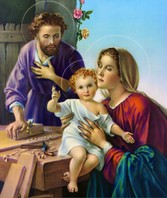 Christmas is on Friday. Wait, really?! Have we bought all of our presents? Are we ready for a Christmas feast? Is work ever going to end? These are the thoughts that plague us right now, but what we really should be asking is: are we ready for the birth of Christ? Advent is almost over - was there really enough time to prepare for the birth of the Son of God? The short is answer is 'no,' and the long answer is still 'no.’ But we know that as we prepare each liturgical year we take another step on the long journey toward Christ. Each celebration gives us the chance to refocus on that journey and draws us back into living out our faith wholly and fully. Who better to help us refocus our sight on Christ than the Holy Family? The Holy Family is the PERFECT example for us as we share in similar struggles. Through the Incarnation, Jesus became man and we believe him to be both fully human and fully divine. In a beautiful way his humanity is formed by Mary and Joseph. Who better to relate to then Mary and Joseph themselves? They were there when they thought Jesus was lost in the temple and there throughout his adolescence. Mary was there to inspire him to begin his ministry at Cana and was there as her son gave up his life for us. During Advent and Christmas we are watching Mary, Joseph, and Jesus grow and become a family. We should take this opportunity to allow ourselves to walk in their footsteps and live a life wholly committed to Christ. We should take this opportunity to ask for their intercession and assistance on our journey to God. Please do not think that their example only applies to families! Their example applies to each and every Catholic, Christian, non-Christian, and human being. The virtues that they live in the Bible are virtues that we should all be living. Look to how Mary and Joseph interact and form Jesus and open yourself up to them. No matter where we are in life we can learn from their unwavering commitment and their steadfast love. I challenge you to think about someone in your life who embodies these qualities: “unwavering commitment” and “steadfast love.” I only have to think back to last week at my father-in-law’s funeral. My wife was delivering the eulogy and said, “[he] reminded me of the importance of the ‘virtue of selfishness,’ as he so called it. This means that you can take control of how you feel, and you must take care of yourself so that you can take care of others. If you have nothing to give, what then are you authentically giving?” He got it. He understood that God is calling us to form ourselves in our faith, to root ourselves in him because we cannot lead others to God without first opening ourselves to his grace. How do we do this? We commit ourselves to Christ with steadfast love. This Advent, as we are preparing for the birth of Christ, let us remember to ground ourselves in his love so that as the new year comes we can go out and evangelize the world. Let us also remember Saint Pope John Paul II’s words on the Holy Family: “I wish to invoke the protection of the Holy Family of Nazareth…it is therefore the prototype and example for all Christian families…St. Joseph was a “just man”…may he always guard, protect and enlighten families. May the Virgin Mary, who is the Mother of the Church, also be the Mother of “the Church of the home”…May Christ the Lord, the Universal King, the King of Families, be present in every Christian home as He was at Cana, bestowing light, joy, serenity, and strength”. Nicholas Shields is a young professional working in Washington, DC.
You don’t need to spend a dime to understand Christmas is all about presence. The Church sings, “Emmanuel- God is with us!” God’s gift to the world is his presence, Jesus our Savior. During the holidays, however, life tends to get busy and expensive. Presence yields to presents. When this happens, as it always seems to, I think of Brother Lawrence. Like the great mystic and reformer, St. John of the Cross, Lawrence (1605-91) was a Carmelite monk. But unlike St. John, Lawrence was a lay brother who spent his “unremarkable” life cooking and cleaning. In fact, all that remains are some recollected conversations and a few scattered letters posthumously compiled by another monk into a short, now classic, spiritual work called The Practice of the Presence of God. His conversion happened one winter after “seeing a tree stripped of its leaves, and considering that within a little time the leaves would be renewed, and after that the flowers and fruit appear” (First Conversation) We need Brother Lawrence to remind us that Christmas is all about presence. For Lawrence, this means having a sense of God’s love in the middle of our busy and distracted lives during the Christmas season, a way of “doing our common business purely for the love of God” (Fourth Conversation). He reminds us to be about God’s business during our busyness. Three of Brother Lawrence’s key insights can help us practice the presence of God this Christmas. Give Your Time Christmas is more about being present than buying presents. The most precious gift we have to give someone is our time. As Christmas gets piled high with shopping, decorating, work, or final exams, the gift of time seems to have the highest price tag. Brother Lawrence reminds us that God is present to us in all times and places: "The time of business does not with me differ from the time of prayer; and in the noise and clatter of my kitchen, while several persons are at the same time calling for different things, I possess God in as great tranquility as if I were upon my knees before the Blessed Sacrament.” (Fourth Conversation) The Nativity celebrates the presence of God on earth, a God who came as an unexpected, untimely, and therefore unwelcome stranger. I think we all know people like that! Being present to God may mean letting ourselves be interrupted or making time for a family member we’d rather ignore, and letting God speak. Celebrate Small Things When we think Christmas, we think miracles. But the great mystery of the Incarnation reveals that God also shows his human face in the smallest, most mundane aspects of life. Brother Lawrence says: “We can do little things for God. I turn the cake that is frying on the pan for love of him . . . who has given me grace to work . . . It is enough for me to pick up but a straw from the ground for the love of God" (The Practice of the Presence of God and The Spiritual Maxims). Brother Lawrence points to the presence of God hidden even among life’s most unpresentable circumstances by faithfully doing unglamorous things for God’s glory. Celebrate Symbols It’s tempting to scoff at the more trivialized or sanitized secular symbols of “the holidays.” Rather than spending Christmas railing against materialism, we can imitate the example of Brother Lawrence, who presents a more constructive, creative way to counteract the consumer culture without pointing out other’s shortcomings. Brother Lawrence would turn everyday objects (like pots and pans) into an occasion to praise God. He did this by making them into little actionable reminders. For example, when you see Christmas lights, say, “Christ is my light.” Or pass a snowman and pray for a friend in need. In this way, we “re-symbolize” the world around us. There are a million possibilities. Come up with a few of your own and make it a habit. Especially at Christmas, the whole world is a reminder of God’s love and presence. All of creation is a conversation starter with God, a conversation called prayer, or as Brother Lawrence would say, “the practice of the presence of God.” For more ways to prepare for the coming of the Savior this Advent and Christmas, please visit our Advent Resources page. Advent, the word in and of itself instills hope and builds anticipation for greatness, joy and peace. What is it are we waiting for? It seems with the close of the year, we wait anxiously for those intimate times with our family and friends, a break from work and the routine and a time for closeness. Maybe, we are waiting for a Christmas party, presents and the holiday ambience. As a student, I always find it paradoxical that finals would be during the season of Advent. The hectic study and preparation of exams easily muddles the preparation I could be doing in my own heart for the King. The anticipation, the excess and busyness I find myself in reminds me of the Gospel story where the disciples forget the presence of the Lord in their midst: “And behold, there arose a great storm on the sea, so that the boat was being swamped by the waves; but [Jesus] was asleep. And they went and woke him, saying, ‘Save us Lord; we are perishing.’ And he said to them, ‘Why are you afraid, O men of little faith?’ Then he rose and rebuked the winds and the sea; and there was a great calm” (Matthew 8:23-26). Looking without eyes of faith, the disciples found themselves in a panic and disarray. With a focus on the storm and on the circumstance that assailed them, the disciples forgot the most essential truth that was right there with them on the boat: the Sleeping Christ. The answer to their cries for help was peacefully present in their situation ready to grace them with a great calm. What is it, again, that we are waiting for during this Advent Season? The gift we are waiting for is the sleeping babe, the sleeping Christ, in the manger. The Divine Son, who humbles Himself so greatly that He arrives in the stillness of night, in the quiet with shepherds and sheep alike. The Creator God comes in the stillness. What we are waiting for is the Prince of Peace. My own hurriedness in finishing all of my papers and exams, finding the perfect gifts for my friends and family, making travel plans and somehow finding time to stop and recognize where I am headed resembles the experience of the disciples. I am awaiting His peace, but my actions reveal otherwise. I must intentionally make the effort to stop and breathe in what I am truly searching for this December. May the anticipation throughout this Advent season bring us to stop and ponder the mystery of the Lord of the Universe resting in a manger who has come to encounter our hearts. May the peace of the Sleeping Christ invade our hearts, our minds, and our actions so we too may accept the true gift He wishes for us all this season: a great calm (Matthew 8:26). Luke 21:34 states, “Beware that your hearts do not become drowsy.” As we prepare to kick-off the season of Advent 2015, Christ implores us to be alert to the dangers of a drowsy heart. I was flabbergasted when I walked into a store the week after Halloween to hear Christmas music floating through the air. I absolutely love Christmas music and, when the time comes, will listen to it right up through the celebration of the Epiphany. However, I find it humorous and a bit befuddling that it seems that we begin to hear Christmas music earlier and earlier each year and yet, on December 26th, it becomes a scavenger hunt to find the familiar, heartwarming tunes on the air and in stores. As Catholics, we have not even celebrated the visit of the magi yet and the Christmas airwaves have gone silent. The holiday season is notorious for its stress, anxiety and drain on our time and energy. Our Advent calendars become filled with shopping excursions, parties, decking the halls and busying ourselves in the kitchen. All of these are wonderful ways to express our love for the season and our love for one another. However, I find that the older I get and the more responsibilities I gain, it becomes harder to latch onto, and maintain, the wide eyed childhood wonder and awe of the Christmas season in its entirety. By the time December 26th rolls around, my heart is drowsy. In the midst of the hustle and bustle, the Word speaks to us again. Proverbs 4:23 states, “With closest custody guard your heart, for in it are the sources of life.” Let us take a moment to reflect on what has arrived for us as Catholics as we begin this season of Advent. Our salvation was made visible with the birth of a child. Isaiah 9:5 proclaims, “For a child is born to us, a son is given us; upon his shoulder dominion rests. They name him Wonder-Counselor, God-Hero, Father-Forever, Prince of Peace.” The dancing harmonies of Handel’s Messiah begin to reverberate through my mind. The prophet Isaiah is speaking to each one of us. A child is born to US. The salvation of the world, the salvation of sinners was born to us as a helpless, dependent infant made of flesh and bone, nerves and muscle just as we are. Physiologically speaking, a newborn quickly learns to experience life and receive sustenance through one of the highest density of touch receptors in its wonderfully created body; the lips and tongue. As Catholics we are able to receive life, power, and renewal through the highest concentration of touch receptors in the body each time we receive the Eucharist. What happens when we make an effort to guard our hearts and offer our bodies as “weapons of righteousness” to open ourselves to fully experience the breadth of receiving the flesh of Christ, the power of Christ? What kind of change would that create in us? What kind of change would it create in our families, our communities and our churches? How would this change affect our experience of the Advent and Christmas season? This power can seem frightening, but Scripture speaks to us through 1 John 4:18, “There is no fear in love, but perfect love drives out fear because fear has to do with punishment, and so one who fears is not yet perfect in love.” We have arrived. This is our Advent. It is time to prepare our heart, mind, body, and soul to celebrate the arrival of our Wonder-Counselor. For more resources on this Advent season, please visit our Advent Resources page. This past summer, I wrote a blog post on the importance of family. Having just returned from a two week Christmas visit home, I’m again reminded of the importance of love in our lives, especially the love of family. I live in Washington D.C., far away from the majority of my extended family. Most of my 40+ cousins live back in Wisconsin and I now only see them a couple of times each year. As we all grow up, we have become more spread out and family holidays often have significant numbers missing. This year, however, almost everyone made it home for some or all of the many traditional Christmas celebrations. We decorated my grandparents’ house for Christmas, had the chaotic frenzy of opening Christmas presents on Christmas Day, tried to find enough tables and chairs in my grandparents’ basement for Christmas dinner, and raced through the “Round Robin” dinner where we travel from house to house for different courses. I was able to connect with cousins I hadn’t seen since last Christmas, meet the fiancés, boyfriends, girlfriends and new babies who are becoming a part of the ever-growing family.
We see a lot of discussions these days on the “true meaning” of Christmas. We are reminded to keep Christ in Christmas and we can often get lost in the frenzy of the season. What struck me, however, was that celebrating the joy of Christ’s birth was magnified by the people who surrounded me: my family. Christmas is a time where we celebrate our Savior becoming human and coming to us on earth. We do this in many ways; we give presents, have special meals, and unique traditions specific to our families. Being with those we love makes tangible the love of Christ that we celebrate at Christmas. Today’s first reading from the first letter of John says this: Beloved, if God so loved us, we also must love one another. No one has ever seen God. Yet, if we love one another, God remains in us, and his love is brought to perfection in us. As this Christmas season draws to a close, I challenge you to take a moment to reflect on your journey this Advent and Christmas. I hope you were able to spend time with loved ones, be they family or friends. How can you carry this love into this New Year? For as today’s reading reminds us, it is through loving one another that God remains in us. Rebecca Ruesch is the Blog Editor for the Catholic Apostolate Center. Some time ago, I wrote about the Hallelujah Chorus from Handel’s Messiah. I mentioned how often times we hear that piece performed around Christmastime, although that portion of the Messiah is actually about Easter and the Resurrection. Now that the Nativity has arrived, perhaps it might be interesting to look at what Handel did use to interpret the Birth of Christ.
“For Unto Us a Child is Born” is taken from the words of the prophet Isaiah (Is 9:6): For unto us a Child is born Unto us a Son is given And the government Shall be upon His shoulder And his name shall be called Wonderful Counselor The Mighty God The Everlasting Father The Prince of Peace In that one verse, the prophet presents so much insight into the aforementioned Child to be born. He will be a son, he shall reign over a great dominion, and he shall bring peace. Well, only one child fits that description: Jesus Christ. When Isaiah tells of a son being given to the faithful, he is not just talking about the neighbor’s kid. He foretells of a son presented as a gift to all who believe. And indeed, in Christ, we have not only a child but also the moment when the word became flesh and dwelt among us (Jn 1:14). And through that word, humanity is redeemed. Through Christ, death no longer has power. The gates of heaven are opened to all that would follow he who is called the Son of God. “The kingdom of heaven is at hand,” declared John the Baptist (Mt 3:2). Yes, we believe that at the end of time Christ will establish his kingdom for all eternity (CCC 1042). But in the meantime, his kingdom exists on earth in the form of the one, holy, catholic, and apostolic Church (CCC 763). Founded by Jesus with a mission to manifest the will of God, the Church waits in hopeful anticipation for the establishment of Christ’s eternal reign. It is very appropriate, then, for Isaiah to foretell a Prince of Peace. Not only would Jesus go on to proclaim a kingdom of love but also, when he returns, establish a heavenly domain that knows no end. At Christmas, we celebrate both a beginning and an end. We celebrate the very beginning of Christ ruling the hearts and minds of the faithful while also looking toward the end when he will come again and his “kingdom will have no end.” Victor David is a collaborator with the Catholic Apostolate Center and a staff member at The Catholic University of America in Washington, DC. |
Details
Archives
May 2024
Categories
All
|
About |
Media |
© COPYRIGHT 2024 | ALL RIGHTS RESERVED


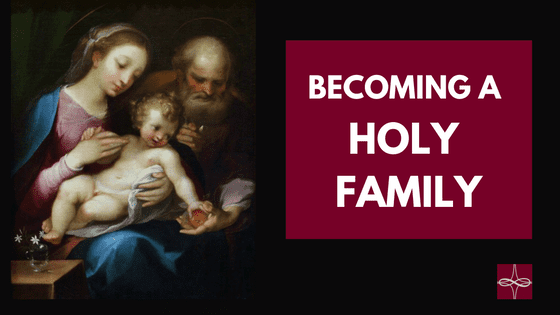

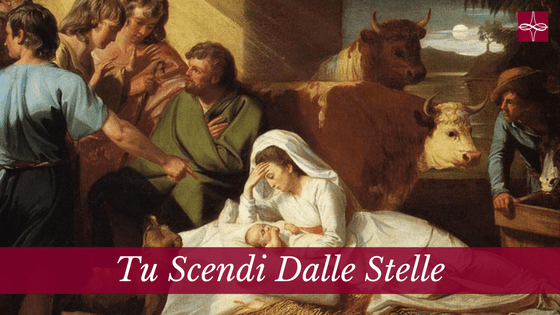

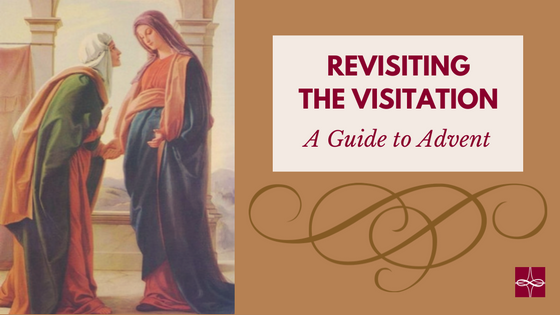

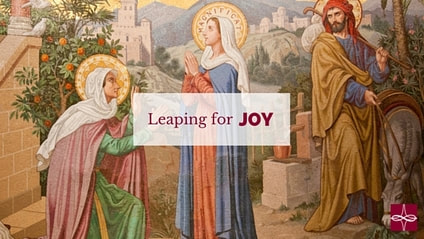
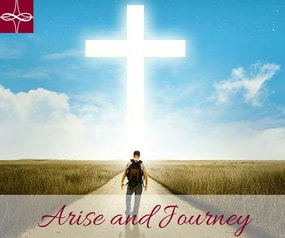

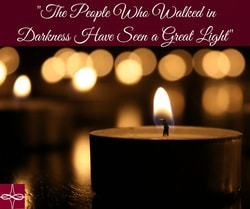

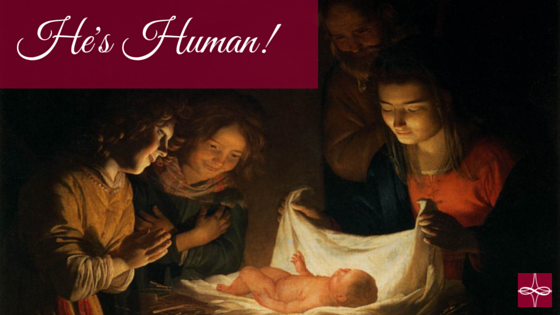

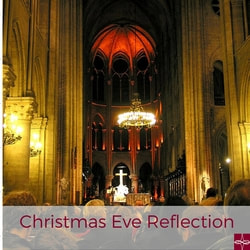
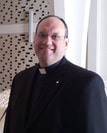
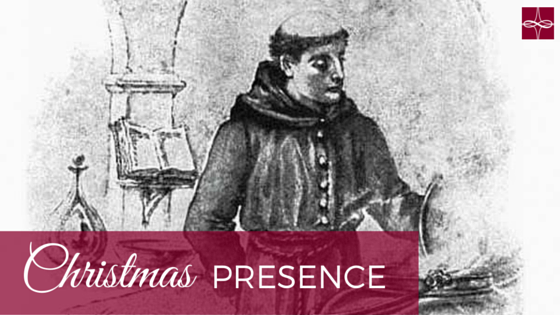

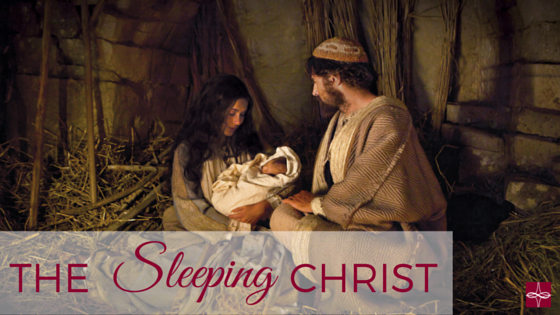

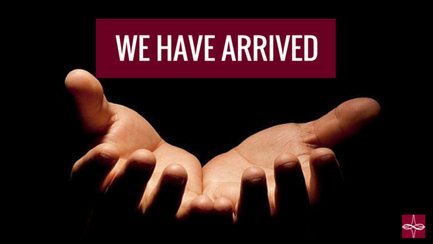


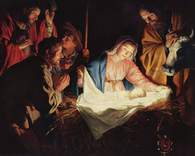
 RSS Feed
RSS Feed